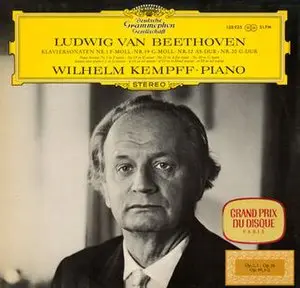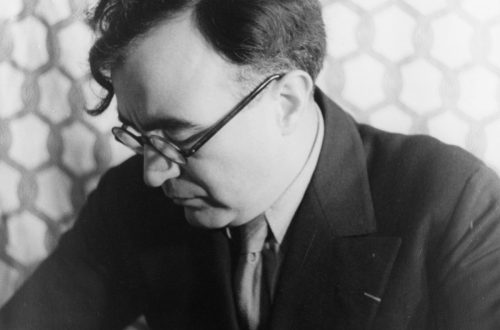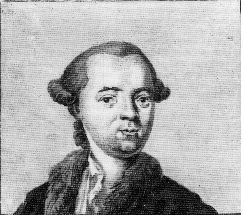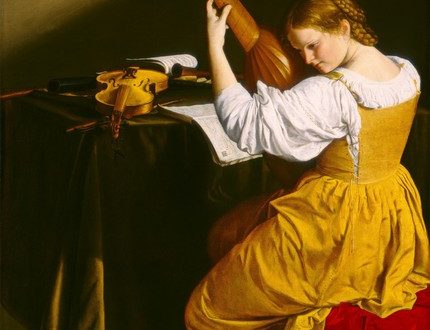
Wilhelm Kempff |
Wilhelm Kempff
In the performing arts of the 20th century, the existence and even the confrontation of two trends, two fundamentally different artistic positions and views on the role of a performing musician can be clearly traced. Some see the artist primarily (and sometimes only) as an intermediary between the composer and the listener, whose task is to carefully convey to the audience what is written by the author, while remaining in the shadows himself. Others, on the contrary, are convinced that an artist is an interpreter in the original meaning of the word, who is called upon to read not only in notes, but also “between notes”, to express not only the author’s thoughts, but also his attitude towards them, that is, to pass them through the prism of my own creative “I”. Of course, in practice, such a division is most often conditional, and it is not uncommon for artists to refute their own declarations with their own performance. But if there are artists whose appearance can be unmistakably attributed to one of these categories, then Kempf belongs and has always belonged to the second of them. For him, playing the piano was and remains a deeply creative act, a form of expression of his artistic views to the same extent as the ideas of the composer. In his striving for subjectivism, an individually colored reading of music, Kempf is perhaps the most striking antipode to his compatriot and contemporary Backhaus. He is deeply convinced that “simply actuating a musical text, as if you were a bailiff or a notary, designed to certify the authenticity of the author’s hand, is to mislead the public. The task of any truly creative person, including an artist, is to reflect what the author intended in the mirror of his own personality.
It has always been like this – from the very beginning of the pianist’s career, but not always and not immediately such a creative credo led him to the heights of interpreting art. At the beginning of his journey, he often went too far in the direction of subjectivism, crossed those boundaries beyond which creativity turns into a violation of the will of the author, into the voluntaristic arbitrariness of the performer. Back in 1927, the musicologist A. Berrsche described the young pianist, who had only recently embarked on the artistic path, as follows: “Kempf has a charming touch, attractive and even surprising as a convincing rehabilitation of an instrument that has been cruelly abused and insulted for a long time. He feels this gift of his so much that one often has to doubt what he revels in more – Beethoven or the purity of the instrument’s sound.
Over time, however, retaining artistic freedom and not changing his principles, Kempf mastered the invaluable art of creating his own interpretation, remaining true to both the spirit and the letter of the composition, which brought him worldwide fame. Many decades later, another critic confirmed this with these lines: “There are interpreters who talk about “their” Chopin, “their” Bach, “their” Beethoven, and at the same time do not suspect that they are committing a crime by appropriating someone else’s property. Kempf never speaks of “his” Schubert, “his” Mozart, “his” Brahms or Beethoven, but he plays them unmistakably and incomparably.
Describing the features of Kempf’s work, the origins of his performing style, one has to speak first about the musician, and only then about the pianist. Throughout his life, and especially during his formative years, Kempf was intensely involved in composition. And not without success – suffice it to recall that back in the 20s, W. Furtwängler included two of his symphonies in his repertoire; that in the 30s, the best of his operas, The Gozzi Family, was playing on several stages in Germany; that later Fischer-Dieskau introduced listeners to his romances, and many pianists played his piano compositions. Composition was not only a “hobby” for him, it served as a means of creative expression, and at the same time, liberation from the routine of daily pianistic studies.
Kempf’s composing hypostasis is also reflected in his performance, always saturated with fantasy, a new, unexpected vision of long-familiar music. Hence the free breathing of his music-making, which critics often define as “thinking at the piano.”
Kempf is one of the best masters of a melodious cantilena, a natural, smooth legato, and listening to him perform, say, Bach, one involuntarily recalls the art of Casals with its great simplicity and quivering humanity of every phrase. “As a child, fairies conjured for me a strong improvisational gift, an indomitable thirst to clothe sudden, elusive moments in the form of music,” the artist himself says. And it is precisely this improvisational, or rather, creative freedom of interpretation that largely determines Kempf’s commitment to Beethoven’s music and the glory he won as one of the best performers of this music today. He likes to point out that Beethoven was himself a great improviser. How deeply the pianist comprehends Beethoven’s world is evidenced not only by his interpretations, but also by the cadenzas he wrote for all but the last of Beethoven’s concertos.
In a sense, those who call Kempf “a pianist for professionals” are probably right. But not, of course, that he addresses a narrow circle of expert listeners – no, his interpretations are democratic for all their subjectivity. But even colleagues each time reveal a lot of subtle details in them, often eluding other performers.
Once Kempf half-jokingly, half-seriously declared that he was a direct descendant of Beethoven, and explained: “My teacher Heinrich Barth studied with Bülow and Tausig, those with Liszt, Liszt with Czerny, and Czerny with Beethoven. So stand at attention when you’re talking to me. However, there is some truth in this joke, – he added seriously, – I want to emphasize this: in order to penetrate Beethoven’s works, you need to immerse yourself in the culture of the Beethoven era, in the atmosphere that gave birth to the great music of the XNUMXth century, and revive it again today”.
It took Wilhelm Kempf himself decades to truly approach the comprehension of great music, although his brilliant pianistic abilities manifested themselves in early childhood, and a penchant for studying life and an analytical mindset also showed up very early, in any case, even before meeting with G. Bart. In addition, he grew up in a family with a long musical tradition: both his grandfather and father were famous organists. He spent his childhood in the town of Uteborg, near Potsdam, where his father worked as a choirmaster and organist. At the entrance exams to the Berlin Singing Academy, nine-year-old Wilhelm not only played freely, but also transposed the preludes and fugues from Bach’s Well-Tempered Clavier into any key. Director of the academy Georg Schumann, who became his first teacher, gave the boy a letter of recommendation to the great violinist I. Joachim, and the elderly maestro awarded him a scholarship that allowed him to study in two specialties at once. Wilhelm Kempf became a student of G. Barth in piano and R. Kahn in composition. Barth insisted that the young man should first of all receive a broad general education.
Kempf’s concert activity began in 1916, but for a long time he combined it with permanent pedagogical work. In 1924 he was appointed to succeed the illustrious Max Power as director of the Higher School of Music in Stuttgart, but left that position five years later to have more time for touring. He gave dozens of concerts every year, visited a number of European countries, but received real recognition only after the Second World War. This was primarily a recognition of the interpreter of Beethoven’s work.
All 32 Beethoven sonatas were included in the repertoire of Wilhelm Kempf, from the age of sixteen to this day they remain his foundation. Four times the Deutsche Gramophone released recordings of the complete collection of Beethoven’s sonatas, made by Kempf at different periods of his life, the last one came out in 1966. And each such record is different from the previous one. “There are things in life,” says the artist, “that are constantly a source of new experiences. There are books that can be re-read endlessly, opening new horizons in them – such are Goethe’s Wilhelm Meister and Homer’s epic for me. The same is true of Beethoven’s sonatas. Each new recording of his Beethoven cycle is not similar to the previous one, differs from it both in details and in the interpretation of individual parts. But the ethical principle, deep humanity, some special atmosphere of immersion in the elements of Beethoven’s music remain unchanged – sometimes contemplative, philosophical, but always active, full of spontaneous upsurge and inner concentration. “Under Kempf’s fingers,” the critic wrote, “even the seemingly classically calm surface of Beethoven’s music acquires magical properties. Others can play it more compactly, stronger, more virtuoso, more demonic – but Kempf is closer to the riddle, to the mystery, because he penetrates deep into it without any visible tension.
The same feeling of participation in revealing the secrets of music, a quivering sense of the “simultaneity” of interpretation seizes the listener when Kempf performs Beethoven’s concertos. But at the same time, in his mature years, such spontaneity is combined in Kempf’s interpretation with strict thoughtfulness, logical validity of the performing plan, truly Beethovenian scale and monumentality. In 1965, after the artist’s tour of the GDR, where he performed Beethoven’s concertos, the magazine Musik und Gesellschaft noted that “in his playing, every sound seemed to be the building stone of a building erected with a carefully thought out and precise concept that illuminated the character of each concert, and , at the same time, emanating from him.
If Beethoven was and remains for Kempf’s “first love”, then he himself calls Schubert “the late discovery of my life.” This, of course, is very relative: in the artist’s vast repertoire, the works of the romantics – and among them Schubert – have always occupied a significant place. But critics, paying tribute to the masculinity, seriousness and nobility of the artist’s game, denied him the necessary strength and brilliance when it came to, for example, the interpretation of Liszt, Brahms or Schubert. And on the threshold of his 75th birthday, Kempf decided to take a fresh look at Schubert’s music. The result of his searches is “recorded” in the later published complete collection of his sonatas, marked, as always with this artist, by the seal of deep individuality and originality. “What we hear in his performance,” writes critic E. Croher, “is a look into the past from the present, this is Schubert, purified and clarified by experience and maturity …”
Other composers of the past also occupy a significant place in Kempf’s repertoire. “He plays the most enlightened, airy, full-blooded Schumann one can dream of; he recreates Bach with romantic, feeling, depth and sonic poetry; he copes with Mozart, showing inexhaustible cheerfulness and wit; he touches Brahms with tenderness, but by no means with ferocious pathos,” wrote one of Kempf’s biographers. But still, the fame of the artist today is associated precisely with two names – Beethoven and Schubert. And it is characteristic that the sounding complete collection of Beethoven’s works, published in Germany on the occasion of the 200th anniversary of Beethoven’s birth, included 27 records recorded either by Kempf or with his participation (the violinist G. Schering and cellist P. Fournier).
Wilhelm Kempf retained enormous creative energy to a ripe old age. Back in the seventies, he gave up to 80 concerts a year. An important aspect of the artist’s multifaceted activities in the post-war years was pedagogical work. He founded and annually conducts Beethoven interpretation courses in the Italian town of Positano, to which he invites 10-15 young pianists selected by him during concert trips. Over the years, dozens of talented artists have gone through the school of the highest skill here, and today they have become prominent masters of the concert stage. One of the pioneers of recording, Kempf still records a lot today. And although the art of this musician can least of all be fixed “once and for all” (he never repeats, and even the versions made during one recording differ significantly from each other), but his interpretations captured on the record make a great impression.
“At one time I was reproached,” Kempf wrote in the mid-70s, “that my performance was too expressive, that I violated classical boundaries. Now I am often declared to be an old, routine and erudite maestro, who has completely mastered the classical art. I don’t think my game has changed much since then. Recently I was listening to records with my own recordings made in this – 1975, and comparing them with those old ones. And I made sure that I didn’t change the musical concepts. After all, I am convinced that a person is young until such time as he has not lost the ability to worry, to perceive impressions, to experience.
Grigoriev L., Platek Ya., 1990





